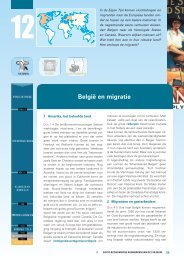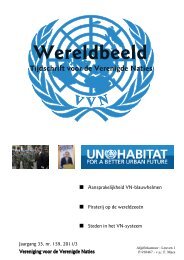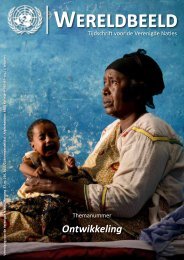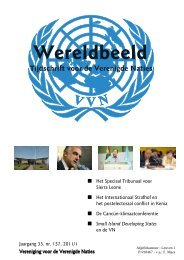Annex 5: United Nations Security Council Resolution 1874 (2009)
Annex 5: United Nations Security Council Resolution 1874 (2009)
Annex 5: United Nations Security Council Resolution 1874 (2009)
You also want an ePaper? Increase the reach of your titles
YUMPU automatically turns print PDFs into web optimized ePapers that Google loves.
However, Japan has been confronted twice with North Korean missiles flying over its<br />
territory, and landing into the Pacific. Japan’s defence forces are increasingly viewing these<br />
missile launches as a ‘clear and present danger’ to the security of the country. In many<br />
respects, Japan is looking to the <strong>United</strong> States of America whether the Obama<br />
Administration is ready to uphold its promise to solving the North Korean Crisis. The<br />
statement by US Secretary of Defense Robert Gates that the US would not tolerate a nuclear<br />
North Korea resonated very positively in Tokyo. The Japanese Government is also<br />
appreciative of Washington’s continued assurance to Japan that if there would be a return to<br />
the Six Party Negotiations, Washington was willing to fully take into account Tokyo’s<br />
concerns. However, the National Defense Outline of Japan is currently under review in Japan.<br />
There are increasingly voices within the ruling elite in Japan which state that North Korea’s<br />
missile tests demand a response from Japan; developing the capabilities for a counter-strike<br />
or even for a pre-emptive strike. This could entail a Japanese missile programme or a new<br />
type of Japanese bomber, or even both. This in itself already entails a dangerous potential<br />
escalation as a result of the North Korean crisis, with further potential consequences for the<br />
peace and security in the rest of the region. An additional, even bigger question is whether<br />
Japan would decide to go nuclear, although the chances for that are slim; for the moment<br />
Japan is looking towards the <strong>United</strong> States of America for leadership so as to avoid further<br />
nuclear proliferation in the region. The nuclear option does however remain on the table for<br />
Japan. There are even those analysts who suggest that Japan at any time is only two<br />
“screwdriver”-weeks away from acquiring atomic bomb-capabilities. Japan wants to find a<br />
political solution to this continuing crisis, but at the same time its elites have changed and<br />
have become more open to the idea of their military offering Japan extra options should<br />
things turn out badly.<br />
South Korea (ROK): no longer on speaking terms with the DPRK?<br />
Of all the countries involved in this crisis, South Korea (aka, the Republic of Korea or ROK)<br />
has the most to loose. The ruling elite in Seoul is very much aware of the dangerous situation<br />
in which it finds itself in today. Technically speaking, North and South Korea are still at war<br />
with each other since the 1950’s.<br />
South Korea’s foreign relations are largely dominated by<br />
governing and, during the last decade, by overcoming the<br />
nation’s division. Successive South Korean governments<br />
have been keenly aware that rapprochement and<br />
reconciliation with the North cannot be achieved in<br />
isolation but demand a permanent balancing act on both<br />
domestic and international tightropes. For South Korea,<br />
the nuclear crisis impedes swift progress in inter-Korean<br />
relations. The Six-Party Talks are an important and<br />
necessary international phase in a multifaceted peace<br />
process for the Korean Peninsula (De Ceuster and<br />
Melissen, 2008: 94).<br />
The final three months of 2008 saw relations between the two Koreas continue to worsen, as<br />
they had since South Korean voters in December 2007 elected the conservative Lee Myungbak<br />
as their next president, ending a decade of rule by liberals. Official ties remained frozen<br />
as Pyongyang media continued to heap childish insults on Lee. Upping the ante from words<br />
to deeds, but also shooting itself in the foot, from December the North placed restrictions on<br />
cross-border traffic and expelled most Southerners from the joint Kaesong Industrial<br />
Complex (KIC), just north of the Demilitarized Zone (DMZ) (Foster-Carter, <strong>2009</strong>).<br />
© <strong>2009</strong> – Dr. D. Criekemans – Negotiations in UNSC on the continuing security provocations by North Korea 22







